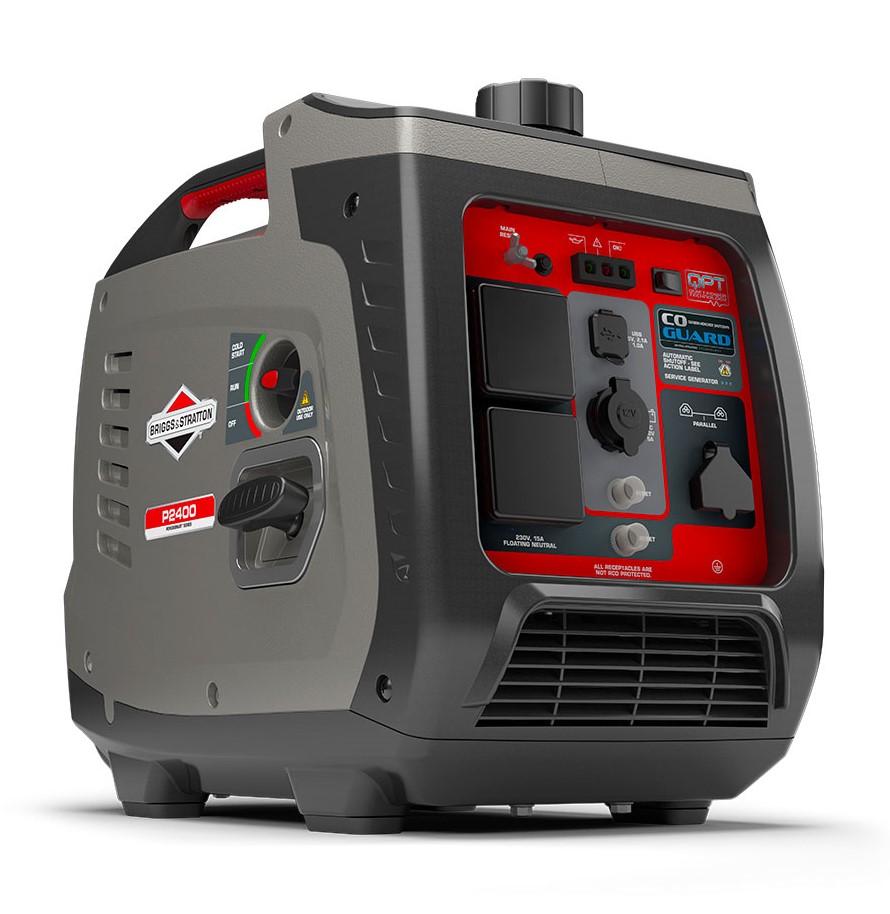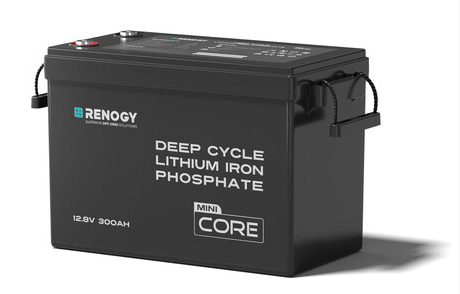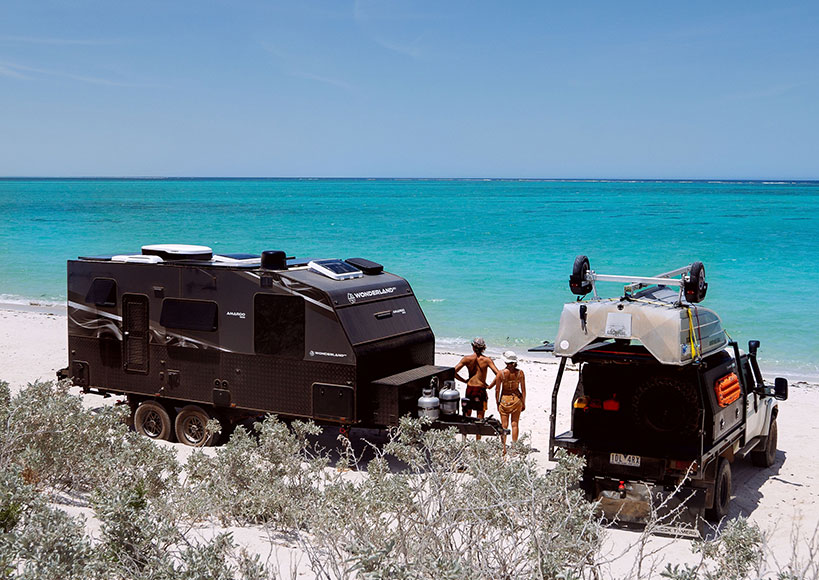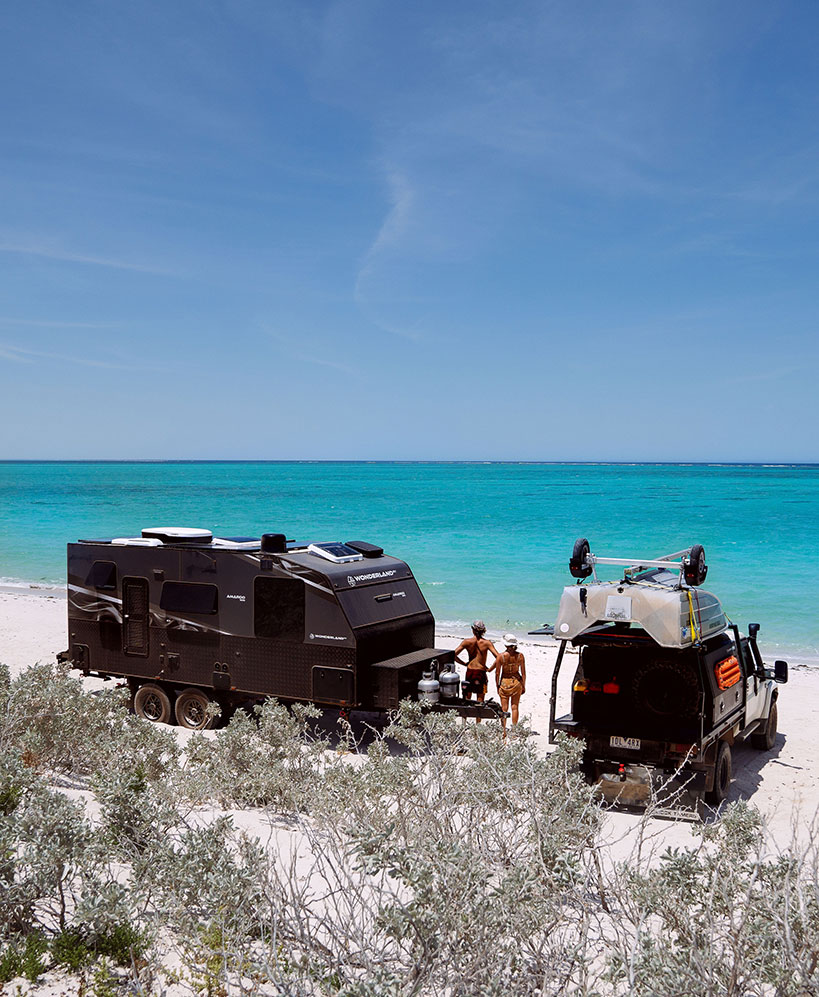Heading off-grid and want to stay connected, charged, and comfortable? Whether you're powering your caravan fridge, charging devices, or running tools, choosing between a generator vs battery is one of the most important decisions for your camping setup.
In this guide, we weigh up the pros and cons of each power source to help you decide which one suits your travel style — or whether combining both might be the best option.
Why Choose a Generator for Camping?
Generators are a go-to for many campers because they offer instant power and high output. If you're thinking about adding one to your setup, check out our Generator Buyers Guide for help choosing the right model. Here’s why generators remain popular:
Instant, Reliable Power
Generators run on fuel, which means as long as you’ve got petrol or diesel, you’ve got power. There’s no waiting around for batteries to charge or worrying about how much solar you’ve collected.
Run 240V Appliances
Generators are ideal for powering larger or high-current appliances like air conditioners, microwaves, kettles, or power tools — anything that requires more energy than a typical 12V setup can handle.
Safe for Sensitive Electronics
Modern inverter generators produce clean, stable power that’s safe for laptops, cameras, and other sensitive gear.
Portable and Versatile
Designed with camping in mind, many generators come with handles or wheels for easy transport. For example, the MaxWatt 2000W Petrol Inverter Generator weighs just 20kg — perfect for on-the-go power.
Downsides of Using a Generator
While generators are powerful and convenient, there are some limitations to be aware of:
-
Noise Levels: Even the quietest inverter generator produces sound, which may disturb others or affect your campsite experience.
-
Restricted Use Areas: Some national parks and campgrounds ban generators due to noise or emissions, or only allow limited usage hours.
-
Emissions and Fuel Dependency: Generators emit fumes and require a steady fuel supply, which adds cost and environmental impact.
-
Bulky and Maintenance Heavy: Larger generators can be cumbersome to move and require ongoing maintenance like oil changes and servicing.
Why Choose a Battery for Camping?
Caravan and camping batteries or portable power stations are becoming increasingly popular thanks to their silent operation and ability to pair with solar.
Silent Operation
Batteries make zero noise, making them ideal for peace and quiet or use in generator-restricted areas.
Clean, Emission-Free Energy
Pair a battery with solar panels and enjoy free, eco-friendly power without the need for fuel.
Portable or Permanent Options
You can choose from fixed lithium battery systems (like Renogy Core batteries) or portable models (like Bluetti AC180P and EcoFlow Delta 3 Plus) depending on your needs. Portable camping power stations are essentially all-in-one battery systems with built-in inverters and multiple outlets, making them ideal for travellers who want plug-and-play convenience without complex installation. They're especially handy for weekenders, occasional off-grid trips, or anyone who wants to power appliances straight out of the box.
Compact and Lightweight
Modern lithium batteries are lighter and more compact than ever. The Enerdrive B-TEC 200Ah Slim Metal Case Battery, for instance, delivers huge power while fitting neatly into small canopies or caravan spaces.
Efficient and Smart
Quality lithium batteries offer deep discharge, fast charging, and smart battery management. While they cost more upfront, they provide excellent performance and longevity.
Downsides of Using a Battery
Batteries offer fantastic advantages, but they’re not without drawbacks:
-
Limited Power Supply: You can’t run every appliance all at once — especially high-draw 240V gear — unless you have a large-capacity system and inverter.
-
Recharging Required: You’ll need solar panels, a DC-DC charger, or AC charger to recharge batteries.
-
Installation May Be Required: Fixed battery systems often require professional setup and wiring.
-
Battery Monitoring Needed: Batteries shouldn’t be fully discharged, so you’ll need to keep an eye on voltage and charge status.
-
Upfront Cost: Lithium batteries can be expensive, though prices are dropping and many brands now offer pre-wired kits for easier installation.
Generator vs Battery: Which Should You Choose?
There’s no one-size-fits-all answer — it depends on how you travel, what you power, and your budget.
Here’s a quick breakdown:
|
Feature |
Generator |
Battery |
|---|---|---|
|
Power Output |
High — good for 240V appliances |
Medium — depends on system size |
|
Noise |
Moderate to loud |
Silent |
|
Emissions |
Yes — fuel combustion |
None |
|
Portability |
Often portable, but heavier |
Very portable (especially lithium) |
|
Recharging/Fuel |
Needs fuel |
Needs recharging (solar/vehicle) |
|
Maintenance |
Regular servicing required |
Minimal |
|
Cost Over Time |
Ongoing fuel and maintenance |
Higher upfront, lower running |
Best of Both Worlds?
Many experienced travellers use both. Here’s why:
-
Use a battery and solar system as your primary power source for everyday needs.
-
Carry a small inverter generator as backup to recharge batteries or run heavy appliances during cloudy weather or extended stays.
This setup offers flexibility, energy security, and minimal compromise.
Final Thoughts
When planning your off-grid adventure, the right power source can make or break your trip. While generators still offer reliable 240V backup power, the trend in modern RV setups is shifting strongly toward battery-first systems. With advancements in lithium technology, most travellers now prefer quiet, clean, maintenance-free battery power as their primary energy source. For ultimate freedom and flexibility, combine both — a quality lithium battery setup paired with a compact generator provides backup when solar or travel time isn’t enough.
Need help finding the right setup for your rig? Explore our full range of camping generators, batteries and power stations, and solar gear at Caravan RV Camping today.
DISCLAIMER* Please note, this advice is general in nature and we strongly recommend consulting the product manual and where relevant, a professional installer.










